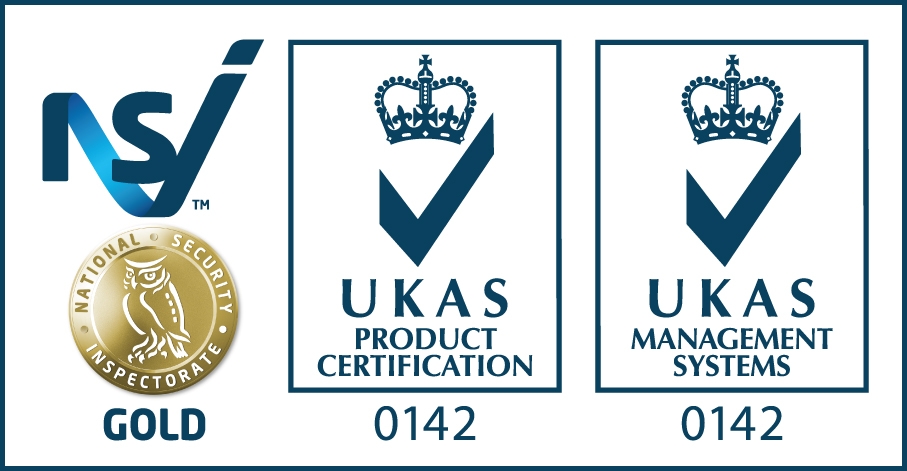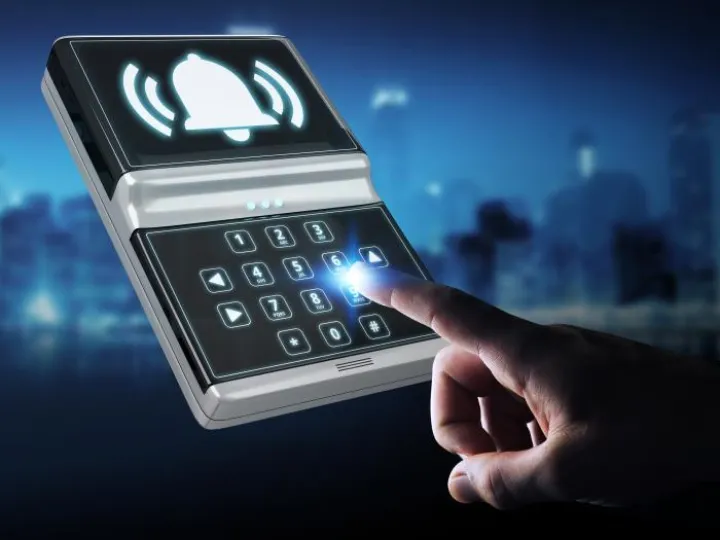Take steps to protect your business
Burglary, criminal damage and vandalism are the crimes most likely to be reported to the police by owners of small businesses.
There is no magic solution to preventing these crimes, but firms that identify the risks and take measures to improve security are far less likely to suffer the consequences.
Businesses that take the time and trouble to assess the risks and put the proper business security measures in place will save time and money and provide a safer and more secure environment for their staff and customers.
Here are some measures you can take to improve security in your business and mitigate the impact of any criminal activity or unwanted intruders on your business or commercial premises.
Identify the risk factors
A quick survey of your business premises will help highlight the strengths and weaknesses of your current security systems. Pay particular attention to entry points and check the level of access control for staff, vehicles and goods. Inspecting the premises for all possible break-in points will quickly highlight any windows, doors, shutters and fences that need immediate attention. And you should consider how easy it is for a burglar to break into the property and how easy it would be for a thief to get away with any stolen goods. Assess how quickly the response will be should an alarm be raised, how long it might take for someone to arrive on the premises and what procedures, if any, are in place if a break-in were to be discovered. Check out what local crime prevention measures are already in operation in your local area, if your business is located in a high crime area, whether there are regular police patrols, if there is a local Crimestoppers ' initiative, and what self-help schemes are available.
Draw up a security plan
Business security needs to be coordinated and coherent with an integrated strategy and reliable delivery, so it makes sense to put security matters for your company in the hands of a single person. Even if your business security is contracted out or has a team to implement a security policy, one individual should carry out the strategic decision-making and overall monitoring of services. When drawing up a security plan for your business premises, it is vital to include regular reviews to implement updates and ensure compliance. The main aims of a security review should be to:
Check security systems regularly to keep them up to date.
Ensure proper security procedures are being followed.
Liaise with police crime prevention officers, fire services and insurers.
Basic security measures
Whatever security system you choose to adopt, there are some necessary measures you can take to help keep commercial premises safe from thieves. Insurance companies often insist on minimum standards for locks to doors and windows, so regular checks on these should already be part of your protocols. All windows, doors, and other possible entry points should be kept fully maintained and repaired, but they should also be strengthened wherever possible. Lighting is a significant factor when improving security measures in business premises. All potential entry points to the building should be well-lit, especially in those isolated areas that don't see much human traffic. Some measures may seem trivial, but they can significantly impact business security. Door keys, for example, can be labelled with codes that staff can understand but will confuse potential intruders if they get hold of them. Prickly bushes planted beneath windows and walls can act as a deterrent to would-be burglars. Locking just a few internal doors at night can be enough to deter thieves from ransacking the whole premises. Intruder alarms and CCTV cameras can act as powerful deterrents. Installing extra internal dummy CCTV cameras can also act as a deterrent, although these should never be a substitute for the real thing.
Install a proper security system
Premises with burglar alarms installed are far less likely to suffer attacks by intruders, according to crime statistics. These days, most commercial alarm systems are wireless, making them easier to install and maintain. Wireless burglar alarm systems are also easier to expand and update. Any alarm system must be reliable, so make sure the system complies with British Standard regulations and that the installer is registered with the National Security Inspectorate (NSI) and cleared by your insurers. Your local Police Force may have a policy of limited response to commercial buildings with a history of false alarms. So test your alarm system regularly and ensure the system is well maintained by an NSI-approved security company such as Crown Securities (UK).
CCTV is now widely used to protect commercial premises against unwanted intruders and is a cost-effective solution for remote sites or buildings that are rarely visited or sparsely staffed. With CCTV, many areas can be monitored from a central point. Still, you must ensure security cameras are correctly calibrated to capture the best images and that areas under surveillance are well-lit. CCTV monitoring can be used to call security guards using both visual and audio verification. Of course, captured CCTV images and audio files can also be used in police investigations and prosecutions following a break-in. Please note, though, that you may also need a policy of alerting staff to CCTV use on your business premises and deleting old images to comply with the Data Protection Act and other legal safeguards against invasion of privacy.
Prepare for the worst
It is not enough to have a comprehensive security alarm system installed, serviced and maintained. Although burglar alarms and CCTV cameras will reduce the risk dramatically, the chances of crime on your premises do not drop to zero. The wise business owner or operator will anticipate the worst-case scenario and put in place a plan to mitigate any losses should a break-in occur and get back to business as quickly as possible. It will help to keep a detailed inventory of assets and keep it as up-to-date as possible so that not only will police have an accurate record of what has been taken, but you will know what stock needs replacing.
Recovery plans should cover as many situations as possible and consider that businesses are most at risk immediately after a theft or break-in. Burglars will know not only that your premises may be in disarray but will also have detailed knowledge of the layout of your premises. They can figure out that you will likely replace stolen goods with new equipment and may not have had time to upgrade your security systems. In case of a break-in, you should involve the police and your insurers as quickly as possible. When upgrading security in your business premises, tell your insurers, as a new alarm system could affect your premiums. Many problematic insurance claims can be traced back to failing to keep insurers in the loop.
More on protecting property
Door entry security systems without keys
Choosing a CCTV camera system
Smart alarm systems explored
Quick Links
Small Print
NSI Gold / Privacy PolicyAccreditations

Burglar alarms & security systems for the Midlands, the North West & North Wales

